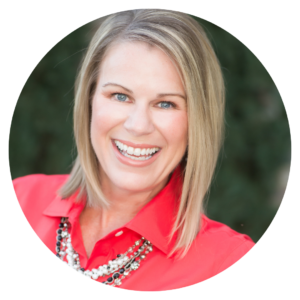There is a misunderstanding out there about what it means to build and run a business. A lot of people think that if they have a legal structure, if they provide a product or service, if they occasionally pay themselves – then they have a business.
Not true.
If you have all of these things, you are self-employed. You don’t truly have a business. And that’s fine. There are a lot of people who are self-employed. To be honest, I’m self-employed. I choose to be self-employed at this phase of my career because I’ve decided I don’t want to build a team. However, for those who want to move from self-employment to a real business, you need one more thing.
A system. Until you have a system, you do not have a business.
Until you have systematized a way to deliver, whatever it is that you deliver to your target customers, you don’t have a business.
Related Post: 3 Key Levers for Growing Your Business
Until what you do can be duplicated, you do not have or run a business.
What does it take to build a system? What would you guess first?
Yep, it definitely takes processes and standardizations. This includes things like standard operating procedures, clear value chains, an incredible culture that empowers employees to be driven to create raving fans, and clear roadmaps for the direction of your company. It takes everything being spelled out so clearly that if anyone gets “hit by a bus” the business will still be able to operate.
That seems pretty simple. And it is for the most part. Here is the biggest thing I see get in the way of entrepreneurs transitioning from self-employed to business owner.
Ego.
Ego gets in the way. “If I don’t do it, it won’t happen.” “I’m the only one who can do this.”
Ego is fear driven.
Having a business requires trust and belief in others to perform. It requires trust in your brand. It requires trust that you have the systems in place that allow it to operate without you.
So, what’s the point of this distinction? First, let me say, there is nothing wrong with being self-employed. I am intentionally self-employed and love it. Second, I hear a lot of people say they’ve started their business to have more freedom and flexibility. If you need consistent income for freedom and flexibility, then you need systems and a business. If you are looking to sell what you do or pass it on to the next generation, you need systems and a business.
Take honest stock of where it is that you really want to go with what you are doing. Get really clear what you want out of what you are doing. If it includes true freedom and flexibility or the potential to pass it on to someone else, then get to work on creating the systems necessary to truly create a business.

STACY OLDFIELD
After nearly 25 years in Corporate America, Stacy launched Minerva Management Partners as a way to combine those years of business experience with her life coaching certification and love for coaching women. Minerva Management Partners is a business coaching practice designed to support women entrepreneurs committed to launching and growing their business. Also, as a Results Coach with Robbins Research International, Stacy helps business women to focus their ideas and efforts and holds them accountable for achieving their goals. Whether it’s helping women discover creative solutions to their business challenges, coaching them to be clear and decisive, or helping them see and take action on new opportunities, Stacy guides them to achieve the business and career results they are seeking. Stacy is also the creator of the Minerva 3-Day Networking Challenge and the Network Like a Boss Lady On-Demand training program. Stacy has been invited to speak to many audiences within South Carolina including the Center for Women, Women Entrepreneurs of Charleston, the Women of the Workforce program of the Naval Information Warfare Center (SPAWAR), Charleston Women in Business, Association of Fundraising Professionals, SCANPO, graduate classes at both The Citadel and the College of Charleston (CofC), and Leadership CofC. She currently serves as a mentor through the Women of Excellence Program at Xavier University and previously served on the Board of Directors for the Beautiful Gate Center and on the advisory board of the SC Women’s Business Center.



